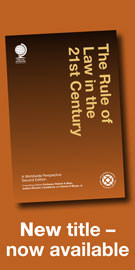What the Gazprom ECJ judgment means for the arbitration community
17 July 2015

Author bio coming soon

Author bio coming soon

Author bio coming soon
A positive decision or an opportunity missed?
Baker & McKenzie's team of experts reflect on the Gazprom European Court of Justice (ECJ) judgment.
The Gazprom European Court of Justice (ECJ) judgment will be seen by arbitration practitioners as both a positive decision and an opportunity missed. Practitioners had hoped that the ECJ would provide guidance on the expanded arbitration exception provisions of the Recast Brussels Regulation, in particular whether the narrow interpretation of what falls within the exception that was given in the infamous West Tankers case (Allianz and Generali Assicurazioni Generali (C-185/07)) remains good law or whether it is now possible for the courts of a member state to grant anti-suit injunctions preventing proceedings in another member state in support of arbitration.
The ECJ helpfully reiterated that arbitral tribunals are not bound by the Brussels I Regulations or the principle of mutual trust. It also confirmed that recognition and enforcement of arbitral awards is governed separately by the New York Convention and member state courts are therefore entitled to enforce an anti-suit injunction granted by an arbitral tribunal. However, the ECJ failed to consider the wider implications of the expanded arbitration exception. The judgment therefore creates an odd distinction whereby arbitral tribunals can grant effective anti-suit injunctions to prevent proceedings in a member state in breach of an arbitrational agreement, while it remains unclear whether a member state's courts can do so.
Given Advocate General Melchior Wathelet's December 2014 opinion – which considered this point and concluded that anti-suit injunctions in support of arbitration granted by member state courts were permitted – it had been hoped that the ECJ would attempt to resolve the issues surrounding anti-suit injunctions and the arbitration exception once and for all. It failed to do so and a future ECJ reference which specially deals with this issue in the context of the Recast Regulation is awaited.
Facts
Two of the main shareholders of Lithuanian company Lietuvos dujos AB were Gazprom and the Lithuanian state. Gazprom sought to enforce an arbitral award in the Lithuanian national courts which had been granted by a tribunal of the Stockholm Chamber of Commerce, pursuant to which the state was ordered to withdraw or limit claims brought in the national courts. The validity of this award, which was essentially an anti-suit injunction against proceedings in the national courts, was referred to the ECJ for consideration regarding whether the award could be recognised and enforced.
Reference
The following questions were put before the ECJ:
{C}· Can an EU member state court refuse to recognise an arbitral award containing an anti-suit injunction on the basis that to do so would restrict its "right to determine itself whether it has jurisdiction to hear the case under the rules on jurisdiction in the Brussels I Regulation"?
{C}· Can an EU member state court refuse to enforce an arbitral award that contains an anti-suit injunction if the award orders a party to limit their claims in another EU member state court?
{C}· Can an EU member state court refuse to recognise an arbitral award that limits the right of the national court to rule on its own jurisdiction, for the purpose of ensuring the supremacy of the EU law and full effectiveness of the Brussels Regulation?
Advocate general's opinion and West Tankers
In December 2014 the advocate general issued an opinion stating that Brussels I Regulations should not be interpreted as compelling a member state court to refuse to recognise and enforce an arbitral tribunal's anti-suit injunction in support of arbitration. However, the advocate general went further and considered the wording of the Recast Regulation (the recitals to which he viewed as explaining "how [the arbitration] exclusion must be and always should have been interpreted"), which he opined permitted anti-suit injunctions in support of arbitration granted by member state courts. This was contrary to the unpopular West Tankers decision, pursuant to which the ECJ had held that where a party brings legal proceedings in a member state court in breach of an arbitration agreement, another member state national court would be unable to issue an anti-suit injunction restraining those proceedings and protecting the arbitration agreement as this would deprive the court first seised of their power to consider their jurisdiction. The effect of West Tankers was that one party to a contract could breach an arbitration agreement by issuing proceedings in a member state court, knowing that the other party would be unable to seek a remedy of an anti-suit injunction.
Decision
The ECJ held that the Brussels I Regulation must be interpreted as not precluding a national court from recognising and enforcing, or refusing to recognise and enforce, an arbitral award that is, in essence, an anti-suit injunction. The regulation does not govern the recognition and enforcement of an arbitral award issued by a tribunal in another member state. Instead, proceedings for recognition and enforcement of arbitral awards are governed by national and international law (ie, the New York Convention).
In its reasoning, the ECJ reiterated that Article 1(2)(d) of the regulation excludes arbitration from its scope. In addition, an arbitral tribunal's award which restricts a national court from considering its own jurisdiction does not infringe the principle of mutual trust, pursuant to which the respective legal systems and judicial institutions of all EU states are harmonised on the rules on jurisdiction of the courts. As an arbitral tribunal is not a court of a member state, an anti-suit injunction award does not infringe the principle as there is no interference by one member state court in the actions of another member state's court.
Further, as an anti-suit injunction award can be contested in a national court, and the court seised has the power to determine whether the award should be recognised and enforced by reference to the applicable national and international law, there would be no breach of the principle of mutual trust which is afforded by the regulations. The party subject to those restrictions still has recourse to judicial protection, meaning the award of an anti-suit injunction should not be prohibited.
In considering the regulations, the ECJ further held that this ruling did not conflict with West Tankers. In Gazprom, the Lithuanian state's non-compliance with the award would not result in penalties being imposed by a court of another member state, meaning the legal effect of the award being enforced differed to the effect of the injunction in West Tankers.
Comment
This case is a partially positive decision for the international arbitration community, as it confirms that arbitration tribunals are not subject to the principle of mutual trust and that member state courts can enforce anti-suit injunctions granted by arbitration tribunals.
However, notwithstanding the positive, the judgment considered only the effect of the Brussels I Regulation, which applies to cases where proceedings were commenced before January 10 2015. It also failed to consider in detail the wider implications of the advocate general's opinion, whereby he considered the scope of the Recast Regulation and whether anti-suit injunctions granted by member state courts are permitted in support of arbitration. The ECJ’s failure to do so has left a number of questions open and it remains to be seen how the ECJ will interpret the further detail provided about the arbitration exception in the Recast Brussels Regulation.












Any comments - send us an email